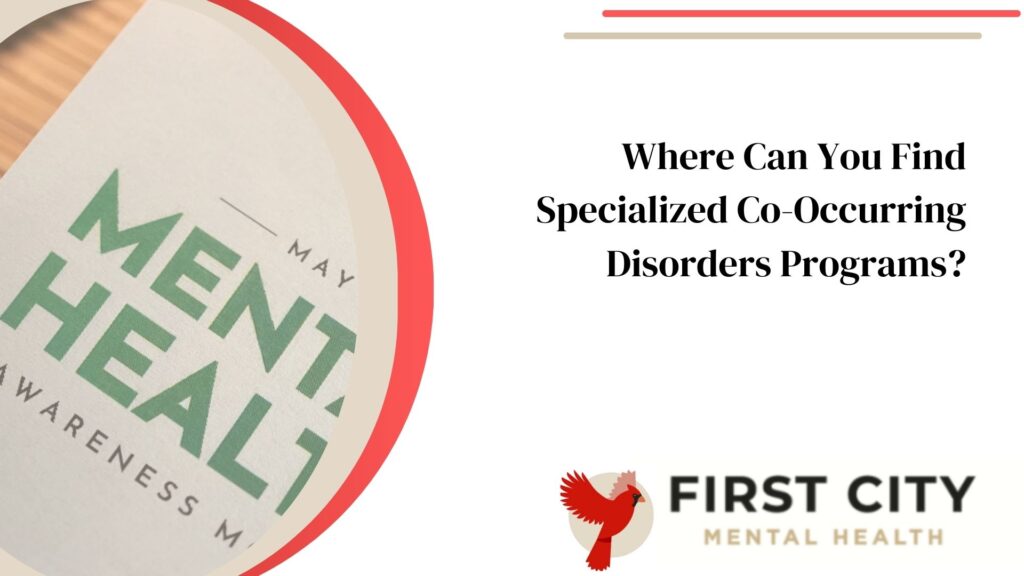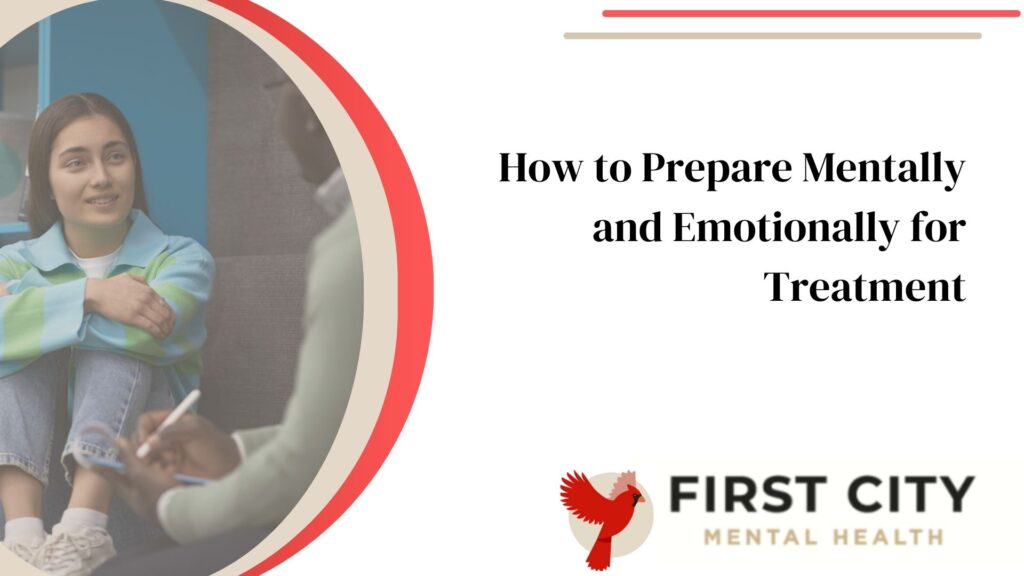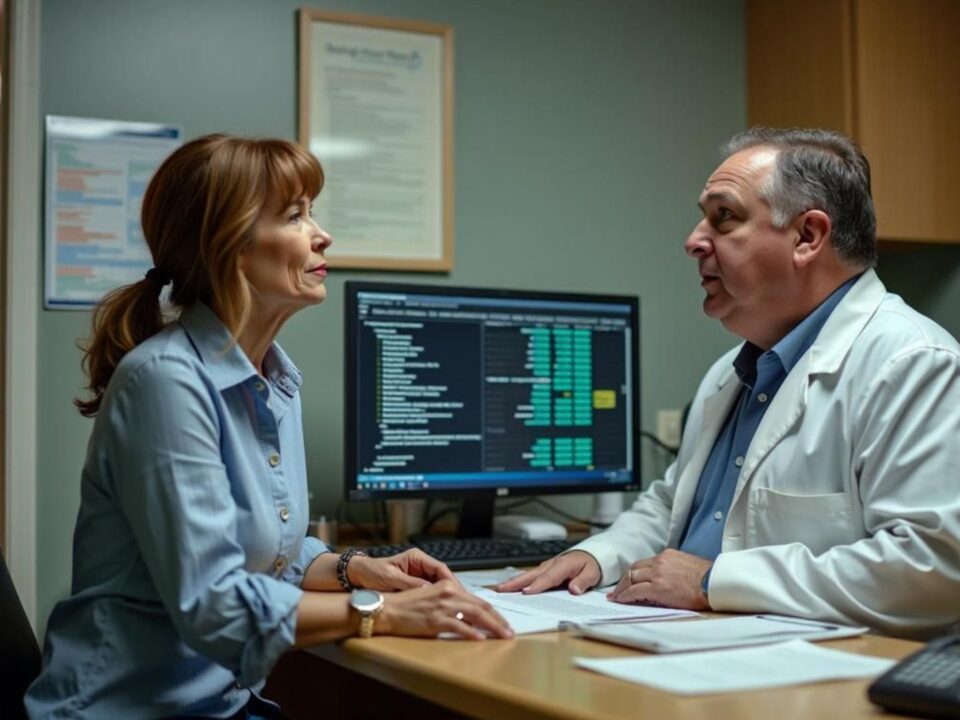
How Trauma Can Lead to Co-Occurring Disorders Treatment: What to Watch For
January 21, 2025
What Are The Benefits Of Early Support Co-Occurring Disorders Treatment For Family Members?
January 21, 2025Navigating the landscape of co-occurring disorders treatment begins with understanding the complexity of dealing with two or more disorders simultaneously. Effective management requires a nuanced approach that addresses both mental health and substance abuse issues, acknowledging their interdependency.
The journey toward recovery is dynamic; it necessitates a comprehensive plan that integrates various therapeutic interventions tailored to individual needs. This post aims to guide individuals through the initial steps of seeking help, highlighting the importance of a coordinated care strategy to enhance treatment outcomes for those facing co-occurring disorders.
Key Takeaways
- Co-occurring disorders, which involve the simultaneous presence of a mental health disorder and substance abuse, require accurate identification for effective treatment. Understanding their interconnection is crucial for anyone seeking help.
- The significance of a precise diagnosis cannot be overstated, as it lays the foundation for a successful recovery by ensuring that treatment addresses both aspects of co-occurring disorders.
- Seeking professional help is a critical step that should be taken as soon as co-occurring disorders are suspected. Early intervention is key to improving recovery outcomes and preventing the progression of these disorders.
- Choosing the right treatment center involves evaluating their experience with co-occurring disorders, the comprehensiveness of their programs, and their approach to individualized care.
What Are Co-Occurring Disorders Treatment and How Do You Identify Them?
Co-occurring disorders, also known as dual diagnosis, involve the simultaneous presence of a mental health disorder and a substance use disorder. Identifying these conditions requires a comprehensive evaluation by healthcare professionals. They look for signs of mental health issues like depression, anxiety, or bipolar disorder alongside symptoms of drug or alcohol abuse. The complexity lies in the fact that substance use can often mask or exacerbate mental health symptoms, making diagnosis challenging.
Professionals use various tools and assessments to pinpoint co-occurring disorders treatment. These include detailed medical histories, psychological evaluations, and substance use assessments. Early detection is crucial for effective treatment. By addressing both conditions simultaneously, recovery can be significantly improved. Treatment for co-occurring disorders typically involves a combination of medication, therapy, and support groups.
In areas co-occurring disorders treatment Kokomo, Indiana exist that focus on treating co-occurring disorders. These programs integrate mental health and substance abuse treatments to provide a holistic approach to recovery. They emphasize the importance of treating the whole person rather than treating each disorder in isolation.
For those seeking treatment for co-occurring disorders in Kokomo, Indiana, it’s vital to choose facilities with expertise in dual diagnosis. Such facilities are equipped with the necessary resources and trained staff to address the complexities of co-occurring disorders. They offer tailored treatment plans catering to their client’s needs, ensuring a more effective recovery process.
Why an Accurate Diagnosis Is Critical for Treatment Success

Identifying co-occurring disorders accurately is the cornerstone of effective co occurring disorders treatment. Without pinpointing both the mental health and substance use issues a person faces, treatments may only address part of the problem. This can lead to a cycle of partial recovery and relapse. Healthcare providers must recognize the interplay between these disorders to tailor a comprehensive treatment plan.
A precise diagnosis paves the way for integrated co-occurring disorders treatment strategies. These are designed to tackle both disorders simultaneously rather than treating them separately. Research shows that integrated treatment approaches significantly improve outcomes for individuals with co-occurring disorders. They offer a more holistic recovery process by addressing underlying issues contributing to both conditions.
Furthermore, an accurate diagnosis helps in setting realistic treatment goals and expectations. It informs the patient and their care team about the specific challenges they may face during recovery. This knowledge is crucial for developing coping strategies that enhance resilience against relapse.
Moreover, understanding the specific nature of someone’s co-occurring disorders aids in personalizing therapy sessions. Therapists can adapt techniques to suit individual needs, improving engagement and effectiveness. For instance, cognitive-behavioral therapy might be modified to tackle substance abuse triggers while also addressing anxiety or depression symptoms.
When Should You Reach Out for Professional Help?
Recognizing the right time to seek professional help for co-occurring disorders is crucial. These complex conditions, where mental health issues and substance abuse problems exist simultaneously, require specialized care. Integrated treatment for co-occurring disorders stands out as the most effective approach. It combines therapies for both mental health and substance use disorders into a cohesive plan. But how do you know it’s time to reach out?
The moment symptoms of either disorder begin to interfere with daily life is a clear signal. This interference might manifest as challenges in maintaining employment, deteriorating relationships, or declining physical health. Moreover, if previous attempts at treatment addressed only one issue—either the mental health condition or the substance abuse—without significant improvement, it’s time for a change. Integrated treatment offers a more comprehensive strategy that tackles both aspects together.
Another key indicator is feeling overwhelmed or hopeless about one’s situation. Mental health issues can amplify the difficulties in managing substance abuse and vice versa. When individuals find themselves in this cycle, professional help becomes not just an option but a necessity.
It’s important to remember that reaching out for help is a sign of strength, not weakness. Integrated treatment programs are designed to provide the support and tools needed for recovery. They address the unique challenges of co-occurring disorders, paving the way for a more stable and healthier future.
Professionals trained in dealing with co-occurring disorders treatment understand the intricacies of these conditions. They utilize evidence-based practices to ensure the best outcomes for their clients. Seeking help at the right time can make all the difference in achieving long-term recovery and well-being.
Where Can You Find Specialized Co-Occurring Disorders Programs?

Finding the proper treatment for co-occurring disorders is crucial. These programs are often housed in specialized facilities. They focus on treating both mental health issues and substance abuse simultaneously. Many hospitals and rehabilitation centers offer these specialized programs. They provide a comprehensive approach to treatment.
Community mental health centers are another source. They often have programs specifically designed for individuals with co-occurring disorders. These centers offer therapy, support groups, and sometimes medication management. Their services are usually more accessible and can be a good starting point for many.
Residential co-occurring disorders treatment centers are available for those seeking intensive care. These facilities offer round-the-clock care and provide a structured environment where individuals can focus solely on their recovery. Residential centers typically offer a range of therapies, including individual counseling, group therapy, and sometimes holistic treatments.
Universities and research institutions sometimes run specialized programs as part of studies or trials. While these may be more difficult to access, they often use cutting-edge treatments and methodologies.
Online resources and support networks can also guide you to the right program. Websites like SAMHSA’s Treatment Locator provide valuable information on finding appropriate care.
How to Choose the Right Treatment Center for Your Needs
Selecting the right co-occurring disorders treatment center involves understanding your needs and what each facility offers. It’s crucial to assess the expertise of the staff in handling both mental health issues and substance abuse, as these are complex conditions that require specialized care.
First, verify the treatment center’s accreditation. Accredited facilities have met rigorous standards of care and effectiveness and often provide a higher level of service. Look for accreditations from reputable organizations such as the Joint Commission or the Commission on Accreditation of Rehabilitation Facilities (CARF).
Next, consider the types of therapies offered. Effective co-occurring disorders treatment centers should provide a range of therapeutic options. These include cognitive-behavioral therapy (C.B.T.), dialectical behavior therapy (D.B.T.), and other evidence-based approaches tailored to treat both conditions simultaneously.
The staff’s qualifications are equally important. Ensure they have professionals who specialize in treating co-occurring disorders. This includes psychiatrists, psychologists, and licensed counselors experienced in dual diagnosis treatment.
Personalized care plans are essential for addressing individual needs. Each person’s journey with co-occurring disorders is unique, requiring a customized approach to treatment. Inquire about how the center formulates and adjusts these plans over time.
Lastly, aftercare support plays a pivotal role in long-term recovery. Investigate whether the center provides ongoing support or resources post-treatment. This could range from outpatient services to community-based support groups.
What Happens During an Initial Assessment for Co-Occurring Disorders?
The initial assessment is a critical step in adult co-occurring disorders treatment. It lays the foundation for a tailored treatment plan. Professionals use this time to gather comprehensive information about the individual’s mental health and substance use history.
They start by collecting personal history, including past treatments and their outcomes. This helps them understand the patterns of the disorders. They also evaluate the severity and impact of each disorder on the person’s life. This dual focus ensures that both conditions are addressed equally, avoiding the common pitfall of treating one while neglecting the other.
Mental health assessments form another crucial part. They may involve standardized tests and interviews. These tools help in identifying specific mental health disorders. Substance abuse assessments follow a similar pattern, focusing on the type and extent of substance use.
The assessment team often includes psychologists, psychiatrists, and substance abuse counselors. Their combined expertise ensures a holistic view of the individual’s condition. A family history of mental health and substance abuse is also considered. This can highlight potential genetic or environmental factors contributing to the co-occurring disorders.
Finally, physical health checks identify any underlying medical issues that might complicate treatment. This thorough approach guarantees that all aspects of the individual’s health are considered when creating an effective treatment plan.
This initial assessment is indispensable for crafting a strategy that addresses both disorders simultaneously, paving the way for more successful recovery outcomes for co-occurring disorders treatment.
Why Early Intervention Improves Recovery Outcomes
Early intervention in treatment for co-occurring disorders plays a crucial role in enhancing recovery outcomes. It targets the issues as they emerge, reducing the risk of complications. This approach helps individuals gain control over their conditions before they escalate.
The initial assessment for co-occurring disorders lays the groundwork. It identifies specific needs and challenges. From there, early intervention strategies can be tailored to address both mental health and substance use disorders simultaneously. This dual focus is essential. It ensures that neither condition worsens due to neglect of the other.
Early co-occurring disorders treatment interventions are designed to be comprehensive. They often include a combination of medication management, counseling, and support groups. These elements work together to stabilize the individual’s condition quickly. They also equip patients with coping mechanisms. These skills are vital for managing symptoms and avoiding relapse.
Furthermore, early intervention fosters a sense of hope and motivation. Patients who see improvement in the early stages of their treatment are more likely to stay engaged in the recovery process. This commitment is critical for long-term success.
How to Prepare Mentally and Emotionally for Treatment

Engaging in treatment of co-occurring disorders program demands significant mental and emotional preparation. This journey, while challenging, paves the way for recovery and stability. As discussed previously, recognizing the importance of early intervention sets a foundational understanding. Yet, embracing the following steps requires readiness on multiple levels.
Firstly, acceptance plays a pivotal role. Acknowledging the presence of co-occurring disorders is not an admission of defeat but a brave step towards healing. It empowers individuals to seek the specialized treatment of co-occurring disorders necessary for their unique situation. Acceptance fosters a mindset open to change and growth, which is essential for navigating the complexities of treatment.
Secondly, educating oneself about what to expect during treatment demystifies the process. Understanding the structure of a co-occurring disorders treatment program, including therapy sessions, medication management, and support groups, reduces anxiety. Knowledge equips individuals with realistic expectations, making them more resilient in facing challenges.
Final Thoughts
Understanding and co-occurring disorders treatment program requires a nuanced approach that considers both mental health and substance use issues simultaneously. This article has explored the critical steps in identifying, diagnosing, and seeking appropriate care for these complex conditions.
It emphasizes the importance of early intervention and choosing a specialized treatment center tailored to individual needs, highlighting how these actions significantly enhance recovery outcomes. The journey toward healing begins with recognizing the signs and understanding the necessity of professional help. For those facing the challenges of co-occurring disorders, reaching out for support marks a pivotal first step towards recovery.
As awareness grows and co-occurring disorders treatment methodologies advance, individuals have better access to the tools and resources needed for a successful rehabilitation process. It’s imperative for anyone struggling or who knows someone who might be to seek professional guidance. The path to recovery is within reach, and taking that initial step can lead to transformative changes.
FAQs
Should I Do First If I Suspect I Have Co-occurring Disorders?
The first step is to seek a professional evaluation from a mental health provider or addiction specialist. They can assess both your mental health and substance use to determine the appropriate treatment plan.
How Do I Find a Treatment Program for Co-occurring Disorders?
Look for specialized co-occurring disorders treatment centers that offer integrated care for both mental health and substance use disorders. You can ask your healthcare provider for recommendations or search for accredited facilities online.
Is Detoxification Necessary Before Starting Co-occurring Disorders Treatment?
Depending on your situation, detox may be the first step, especially if you are dealing with substance dependence. Detox allows your body to safely rid itself of harmful substances under medical supervision, preparing you for comprehensive treatment.
What types of therapies are involved in the treatment of co-occurring disorders?
Treatment typically includes individual therapy, group therapy, and medication management. Cognitive behavioral therapy (CBT) and dialectical behavior therapy (DBT) are commonly used to address both mental health and addiction issues.






